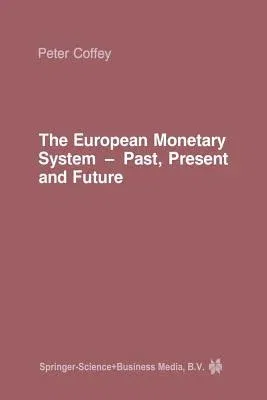The European MJnetary System (EMS) is perhaps the only success story of
the Common Market since the First Enlargement. Its success, particul-
arly where the conmercial use of the EO] is concerned, has taken nost
experts by surprise. So Irn. lch so, that when the author tried to
recamEIld to his students a suitable and substantial w:: >rk of study
and/or reference about the experience of the EMS and its possible future
evolution --- no book could be found. Thus, the author set out to write
the present w:: >rk. The author's aim is not to give a historical
account of the EMS. Rather, the intention is to place the experience in
a rrajor historical context wherein the System is seen an irrpJrtant
transitional phase on the road to the lementation of a full economic and
rronetary union (EMU). When examining the earlier plans for an EMU which
Si3!N the light of day between 1969 and 1970 (already so long ago: )
clear reasons emerge why the original six founder Member States of the
EEx::: should have found it logical to embark upon the road to an EMU -
"provided the political will to do so existed". Thus, they had beCOIre
highly integrated and were conducting half their trade with each other.
Then, there was the desire to integrate still further ---- eventually
leading (perhaps) to a political union.


